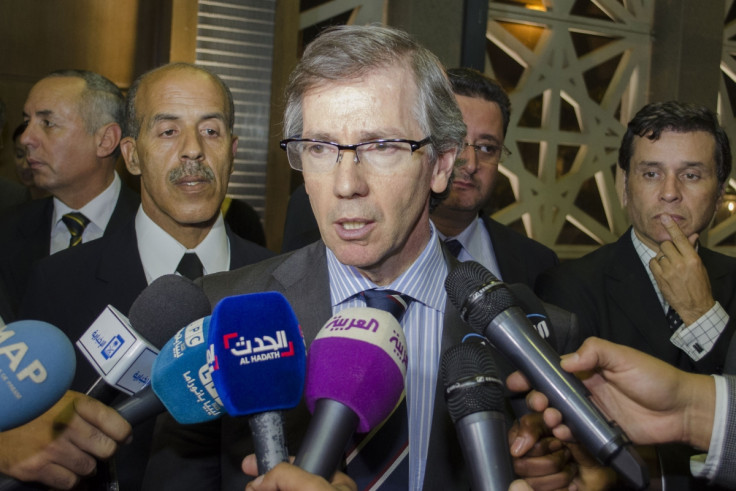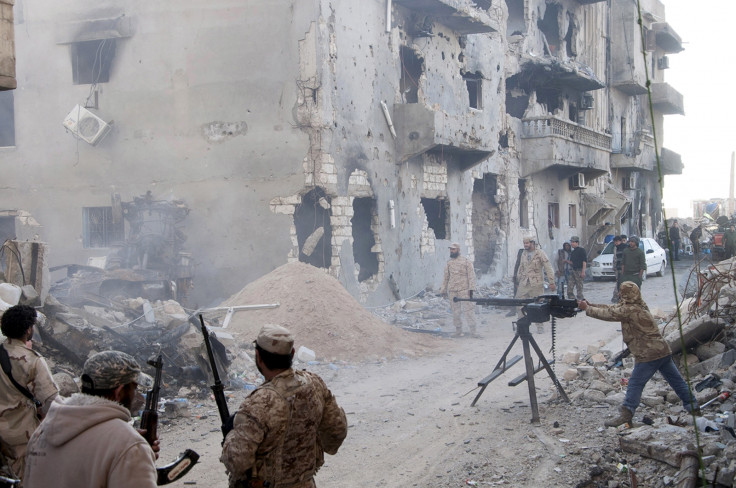Libya: How will Government Of National Unity proposed by UN work?

The United Nations (UN) has unveiled its plans for a unity government to bring to an end 18 months of civil war in Libya that has thrown the nation into disarray and created a de-facto partition between the east and west of the country. Under the plans, negotiated painstakingly by UN envoy Bernardino Leon since September 2014, concessions have been made to Libya's two broad factions − its internationally recognised government in Tobruk to the east and an Islamist government backed by powerful militias in the capital Tripoli to the west.
The executive of the unity government looks to combine the two opposing groups through six consensus figures. The proposed members of the proposed Presidency Council are Prime Minister Fayez Sarraj, a prominent Tripoli politician and two deputy prime ministers: Ahmed Maetig, an Islamist-backed businessman who briefly held the position of prime minister in 2014, and Musa Kuni a Tobruk government minister from the country's minority ethnic Tuareg group. Ministers Mohamed Ammar and Omar Aswad complete the council.
The proposed legislature looks to reconcile the two parliaments in the country that has claimed sovereignty over Libya since August 2014. The House of Representatives, elected in June 2014, will remain as broadly as it is.
However, a second chamber has been added to appease disgruntled members of the General National Congress – the forerunner to the House of Representatives − which refused to step down from power in 2014. The State Council, the second chamber, will have 145 members and will act broadly as a body for scrutiny.

While Leon and the delegates from both sides of the talks in Skhirat, Morocco have worked to make mechanisms for consensus wherever possible, the ratification of the unity government faces a number of immediate challenges, let alone the problems it would face as it began work to lift Libya out of the chaos that followed the 2011 revolutionary war.
The first obstacles lie in passing the plan through the legislatures. Following meetings on Wednesday (7 October) the GNC rejected the unity plan in its current form. The House of Representatives has said it will not accept any amendments to the draft of proposals it ratified in July. The UN had envisaged the problems but while outlining the deal, Bernardino Leon called it "the best possible proposal," emphasising that there would be no further drafts of the peace plan.
Beyond the initial political hurdles are those of security. The plans for the unity government stipulate that the seat of power would be in Tripoli, currently in the hands of Islamist militias aligned with Misrata. The Libya dawn coalition, as it is known, expelled the House of Representatives last year and its leaders have already indicated they will have nothing to do with the UN deal.
Rafik Hariri Center Nonresident Fellow Mohamed Eljarh told IBTimes UK the UN's security terms would be difficult to implement. "You have the hardliners in Tripoli who will make sure that the deal will not go through and even if it were to go through, it will mean nothing on the ground in Tripoli," he said "They look good but they are very difficult to implement and it is very ambitious," he added.
Local media in Libya has already reported that the proposed head of the State Council, the second legislative chamber, will not participate but the threat of an expanding Islamic State and public will in Libya may continue to push moderates in the country towards a settlement.
© Copyright IBTimes 2025. All rights reserved.






















